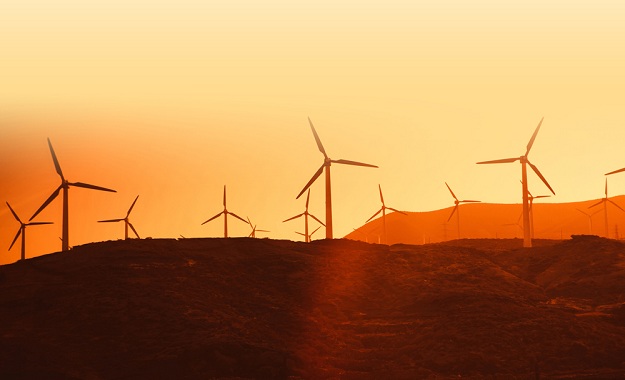Access to energy is a basic human requirement, says Harold Hyunsuk Oh. The World Energy Forum has founded an institute to promote discussion about the creation of a sustainable world

The World Energy Forum (WEF) was established in New York in 2008 with the purpose of leading the global conversation on energy issues. The organisation was created to provide an international platform for transparent, unbiased and neutral discussion among world leaders and experts.
Energy issues are fundamental to the aspirations and destiny of the human race in the 21st-century world. Modern societies are characterised by continuously accelerating consumption of the energy needed to operate their physical infrastructures. All nations and peoples of the world seek a better standard of living through development, industrialisation and technological advancement. And all of these objectives require an abundance of energy – just as the human population grows exponentially, energy consumption grows even faster. From 1966 to 2006 the human population doubled while energy consumption tripled. During this same period, easily available fossil fuel-based energy sources have dwindled, yet a complete transition to reliable, clean, safe and sustainable energy production still awaits us somewhere in the future.
Another reason that energy is so central to the destiny of humanity is the impact of its production and use on the environment. Energy practices have direct implications for the environment and, as a result, humanity is facing a looming environmental crisis exemplified by climate change. WEF promotes and facilitates technological advancement, as a solution to this.
To this end, WEF engages heads of state and ministers from United Nations member states, as well as leaders of intergovernmental organisations, the world’s largest corporations, financial, academic and research institutions. Our mission is to provide safer, more accessible and more sustainable energy for all nations and people. WEF embraces innovation in policy, technology and finance. We promote the efficient use of energy that mitigates environmental impacts and thereby transforms the global energy system, achieving energy for all while saving the planet.
However, these efforts are not enough to save us. We need the political will of the people to effect change on a global level. WEF envisions becoming a global grass-roots organisation, embracing the needs of all nations and peoples, including governments and the private sector, to transform global energy practice. The foundation aspires to create a paradigm for sustainable development throughout the world for present and future generations.
A change in human consciousness is needed in order to make a global impact. I proposed that 22 October should be World Energy Day – an event to be commemorated throughout the world – to the world leaders gathered at World Energy Forum 2012 in Dubai, United Arab Emirates. All embraced the initiative. WEF pledged to co-ordinate educational programmes furthering this goal throughout the world – an enterprise we continue with.
The Declaration of World Energy Day on 22 October stated that every person is born with the right to basic access to the energy necessary to build his or her life. It also said that the highest political authorities of every land must respect this fundamental human right. These principles define the philosophical grounding of World Energy Day. As human consciousness evolves, it becomes more sensitive and inclusive. Not too long ago, some people believed that some humans were inferior enough to be owned as slaves. More recently, women were considered unworthy to participate fully in society. These days many people are concerned about cruel treatment of animals. WEF believes that if our consciousness is evolving and expanding, the time has come for us to recognise that energy access is a fundamental human right. We believe that in order to carry out the mission of WEF, education is the most important starting point. We created the New York Institute of Energy and Water in 2010, later changing the name of this institution to Oh Institute of New York. Currently this institution is going through the New York State approval process for academic degree-granting institutions.
Oh Institute was created with the mission of fostering the creation of a sustainable world, and our quest for sustainability begins with issues pertaining to energy, water and the environment, which affect billions of people today as well as future generations. The institute will be a global centre where the prominent issues of energy, water, the environment and all aspects of sustainability are researched and discussed. All subjects – whether they are engineering, scientific and economic or concerning political, social, business and international affairs – will be addressed from a multifaceted perspective.
Oh Institute will be a global hub for advanced studies and research in all areas of sustainability. To this end, it will partner with the most prominent institutions in their field throughout the world.
The first historically verifiable change in human society took place with the widespread transition from hunting and gathering to agriculture and settlement from 10,000 to 5,000 BC. Many millennia later, the Industrial Revolution sparked the transition from manufacturing by hand to machine, beginning in the 18th century. Further changes fostered the development of evermore powerful machine tools. These on-going revolutions in the production of energy and increasingly powerful machinery have propelled humanity into a 21st century fraught with perils of the human race’s own making. However, concerns arising from all quarters increasingly question the sustainability of the world that emerged and continue to evolve with each new phase of the technological revolution.
Oh Institute was created to address the certainty that humanity will undertake a new and profound revolution during the 21st century. This revolution will transform humanity by creating a new civilisation based on sustainability. Oh Institute aspires to play a leading role in facilitating the emergence and future of this new civilisation.





